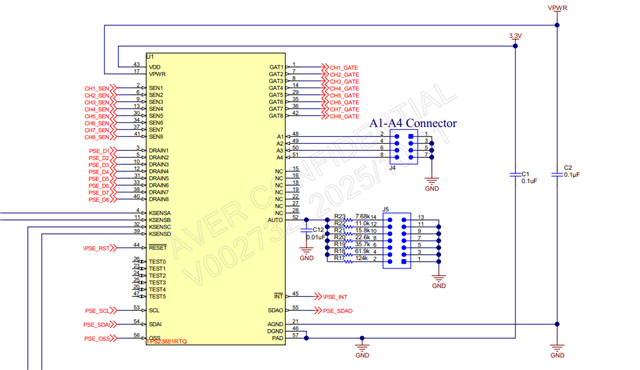Tool/software:
Dear TI Technical Support,
I would like to raise a question regarding the AUTO pin behavior of the TPS23881RTQ. Could you please provide clarification on the following points:
-
The exact conditions required to enable autonomous mode via the AUTO pin (e.g., resistance range to GND, tolerance).
-
Whether different resistance values correspond to specific operating modes, and if so, the detailed mapping table.
-
Can the AUTO pin be left open or floating without external connection?

Your support and clarification will be greatly appreciated.
Best regards,


